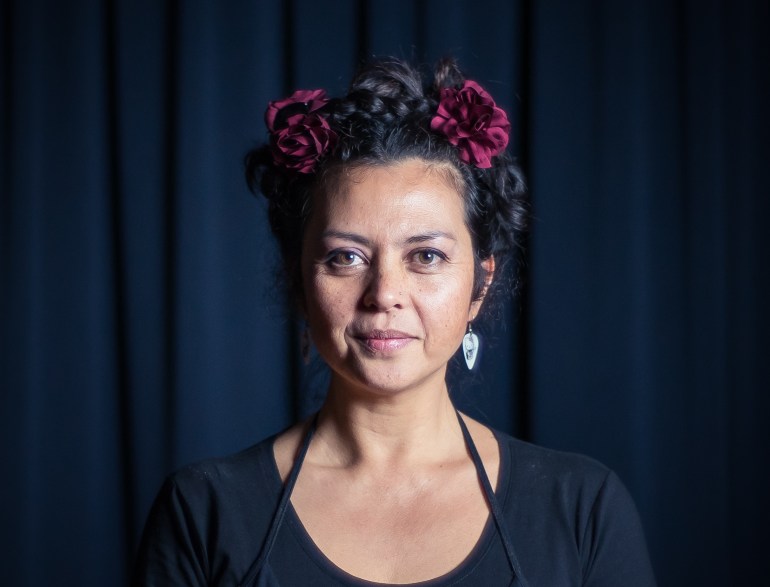Katrina Irawati Graham.
Change is driven by discomfort, writes WIFT Australia chair Katrina Irawati Graham. Now over a year since the #MeToo movement began, she believes that with the right leadership and the right tools, the screen industry could lead the way in achieving gender parity.
Over a year ago, the Weinstein allegations ignited the momentum of the #MeToo movement. Since then there has been an overwhelming shift in conversations around gender, sexual harassment and diversity. The exposure of the pain and damage of abuse is unprecedented. This has also given rise to fear and uncertainty about what to do next. I think it is timely to recall the words of #Metoo founder Tarana Burke, who describes one of the specific purposes of the movement as radical community healing.
WIFT Australia was created earlier this year to unify the voice of female-identifying screen practitioners under an umbrella of joint support and advocacy. Key among this is the issue of gender parity in our industry. What I have come to appreciate is that to do this work we must also be in the business of radical community healing. This is nuanced and tender work that can only be done with care, intelligence and an open heart and mind.
We must understand, on a deep level, that the current organisational and cultural structures within which we all operate were created by, and therefore favour, those who hold the social power while marginalising those who do not.
The screen industry is moulded by these same power imbalances and gender pressures.
While we cannot separate ourselves out from the environment in which we create, it would be a huge mistake to underestimate how strong our positions are as highly visible storytellers.
We can be a shining light to other industries. Imagine if our community turned this around in a way that no one else has done. Imagine if the telecommunications industry, the mining industry, the hospitality industry could say, “Let’s do what the screen industry is doing.” This is possible.
Change is driven by discomfort. This sense of discomfort is what the #MeToo movement has created. That’s what makes it a gamechanger. It has brought visibility to what was once invisible – and that mass of stories cannot be unseen.
So how do we harness this discomfort and move towards something healthier? First we accept that addressing societally embedded inequality requires a broad willingness to commit to long term cultural and structural change. This will need to come from as many directions as possible including from the top down and the bottom up.
Secondly we must realise that we are all in this together. Gender inequality is a long-standing human power imbalance that affects us all. Intersectional forces mean some of us are more affected than others. We must be willing to listen and to have respectful and hard, honest conversations which includes learning how to say sorry for the hurt we have created. We must understand that not only are we capable of solving this – we are the only ones who can and we have a moral imperative to do so.
At WIFT Australia we look at industry entry and exit points – this shows us where the rubber tyres of gender inequality hit the road. We know that gender balance in film schools is around the 50-50 mark, yet this plummets within a few short years.
Parents and carers, like myself, face additional challenges when trying to combine work and caring commitments. A striking 73 per cent of respondents in WIFT’s recent Raising Films Australia Survey report a negative impact of caring work on their role in the industry and again, intersectional women face disproportionate challenges.
Sexual harassment figures also outline a clear exit point for those impacted by abuse, with WIFT NSW’s recent survey revealing 72 per cent of respondents had experienced either harassment or discrimination which negatively affected their career.
When women prematurely exit the industry, our community loses years of experience and education. Fresh, vibrant perspectives are excised from our on-screen stories and we allow trauma to seep further into our community.
I’ve been working closely with my colleagues at WIFT on solutions: the MentorHer Program matched women across Australia with mentors; our Raising Films Australia initiative launched the first ever national screen industry survey on parents and carers and is one of the partners behind the Screen Forever Creche; we created the first industry wide forums on sexual harassment and I maintain a board membership on NOW Australia.
What this has taught me is the importance of leadership. Not just the top down CEO, policy type leadership – though that is undoubtedly influential – but also the type of leadership every individual exerts daily within our personal spheres of influence.
So how do we all become better leaders? I believe that a person armed with self-knowledge has the capacity to make better decisions, to be a better form of themselves and to support others. To this end, I am training in bystander leadership, and WIFT Australia, with the support of Griffith University’s powerful MATE Bystander program, is applying for grants to create a national training tour.
I am also learning more about the language and structures of consent so that we can bring best research and practice into that area as well.
These three ideas – we are all leaders, we can be better bystanders, we can get better at hearing and speaking about consent – all meld into one point: we can train ourselves to do better. If we don’t actively work towards positive change in ourselves and our structures then we are endorsing the status quo.
By arming ourselves with the tools and knowledge we can take this journey together as an industry. It’s only the beginning of a long road, but we can support each other to do what needs to be done. This is how we make radical community healing possible.
This article originally appeared in IF Magazine #185.



